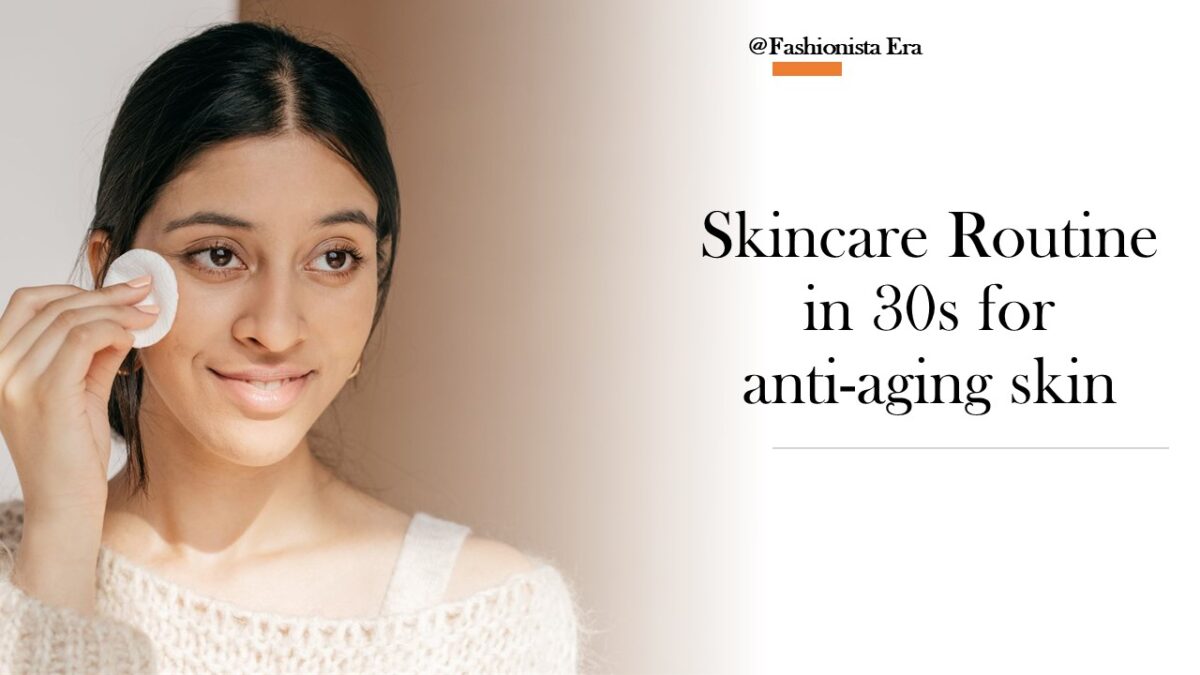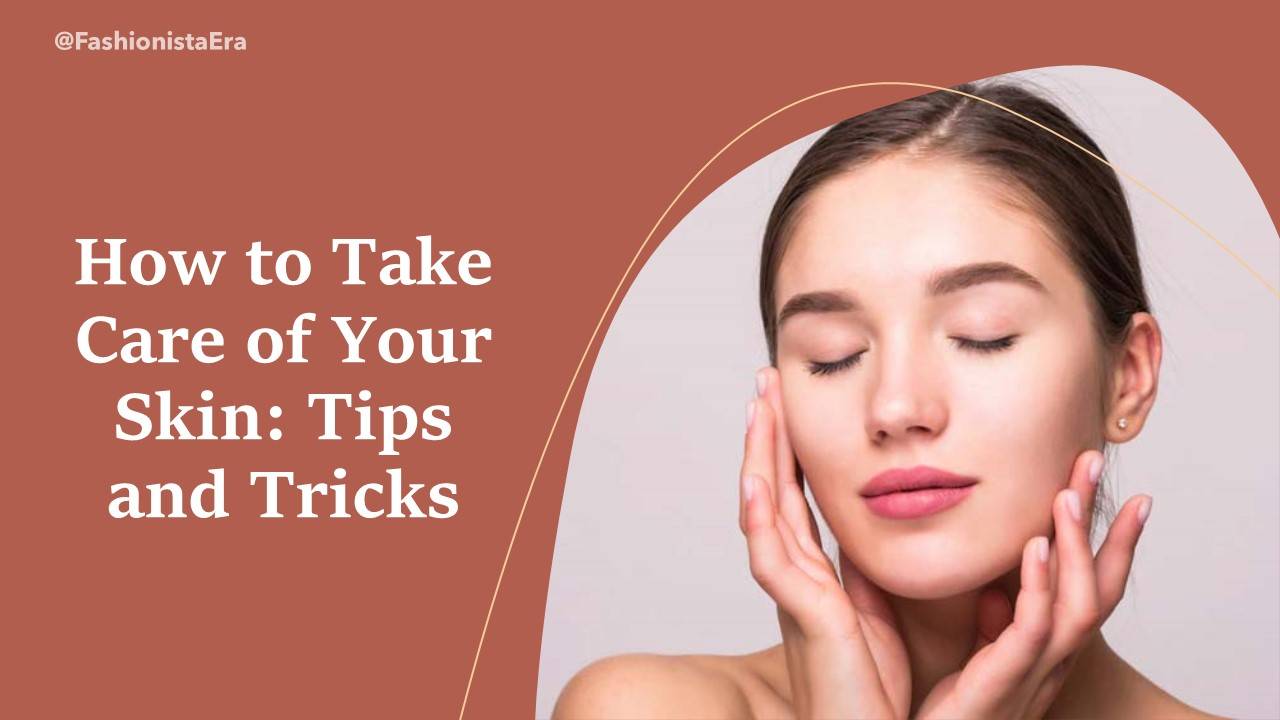As a skincare enthusiast, I’ve learned that taking care of your skin is more than just about looking good. Your skin is the largest organ in your body, and it’s important to take care of it to maintain your overall health. In this ultimate guide, I’ll be sharing tips and tricks on how to take care of your skin, including understanding your skin type, daily skincare routines, natural remedies, and more.
Introduction to the importance of taking care of your skin
Taking care of your skin is vital to maintaining its health and appearance. Your skin is constantly exposed to environmental factors such as pollution, UV rays, and harsh weather conditions, which can damage your skin and cause premature aging. By adopting a good skincare routine, you can help protect your skin from these external factors and maintain its natural glow.
Moreover, taking care of the skin is essential to prevent skin diseases. It’s important to be aware of any changes in your skin, such as new moles or rashes, and to consult a dermatologist if you notice anything unusual. By taking care of the skin, you can help prevent skin cancer and other skin conditions.
Understanding your skin type
Before starting any skincare routine, it is essential to understand your skin type. There are five main skin types: normal, oily, dry, combination, and sensitive. Normal skin is well-balanced, oily skin produces excess sebum, dry skin lacks moisture, combination skin is a mix of dry and oily areas, and sensitive skin is easily irritated. Determining your skin type will help you choose products that work best for your skin.
If you are unsure about your skin type, there are a few ways to determine it. One way is to examine your skin after cleansing and toning. If you have oily skin, you will notice a shine on your forehead, nose, and chin. If you have dry skin, you may notice flaky or rough patches on your skin. Combination skin will have oily areas on the forehead, nose, and chin, and dry patches on the cheeks and jawline. Sensitive skin may be red, itchy, or easily irritated.
To determine your skin type, wash your face with a gentle cleanser and wait for 30 minutes without applying any skincare products. If your skin feels tight and dry, you have dry skin. If your skin feels oily and shiny, you have oily skin. If your T-zone (forehead, nose, and chin) is oily while your cheeks are dry, you have combination skin. If your skin is easily irritated and prone to redness, you have sensitive skin.
Daily skincare routine for all skin types

A daily skincare routine is essential in maintaining healthy skin. The basic steps include cleansing, toning, and moisturizing. Cleansing removes dirt, oil, and makeup from the skin, while toning helps balance the pH level of the skin and prepares it for moisturizing. Moisturizing helps keep the skin hydrated and healthy.
When choosing skincare products, it is essential to choose products that are suitable for your skin type. For oily skin, use a cleanser that is gentle and won’t strip the skin’s natural oils. For dry skin, use a moisturizing cleanser that won’t dry out the skin. For combination skin, use a cleanser that is gentle and won’t irritate the skin. For sensitive skin, choose a fragrance-free and hypoallergenic cleanser.
After cleansing, use a toner that is alcohol-free and mild. Apply the toner to a cotton pad and gently swipe it across the face. This will help remove any remaining impurities and balance the pH level of the skin. Lastly, apply a moisturizer that is suitable for your skin type. For oily skin, use a lightweight moisturizer. For dry skin, use a heavier, more hydrating moisturizer. For combination skin, use a moisturizer that is lightweight and won’t clog pores. For sensitive skin, choose a fragrance-free and hypoallergenic moisturizer.
It’s important to cleanse, moisturize, and protect your skin every day. Here are the steps you should follow in your daily skincare routine:
Cleansing: Use a gentle cleanser to remove dirt, oil, and makeup from your skin. Massage the cleanser onto your skin in circular motions and rinse it off with lukewarm water.
Toning: Use a toner to remove any remaining impurities and balance your skin’s pH level.
Treatment: Apply any serums or treatments that target your specific skin concerns, such as acne or fine lines.
Moisturizing: Apply a moisturizer to hydrate your skin and lock in moisture.
Sunscreen: Apply sunscreen with SPF 30 or higher to protect your skin from UV rays.
Skin care in 30s for anti-aging skin

As we age, our skin starts to lose elasticity and becomes prone to fine lines and wrinkles. In our skin care in 30s, it is essential to start incorporating anti-aging products into our skincare routine. This will help prevent premature aging and keep the skin looking youthful.
One of the most important anti-aging products to incorporate into your skincare routine in your 30s is a retinol cream. Retinol is a form of vitamin A that helps increase collagen production and reduce the appearance of fine lines and wrinkles. Apply a pea-sized amount of retinol cream to your face at night after cleansing and toning.
Another important anti-aging product to incorporate into your skincare routine in your 30s is a vitamin C serum. Vitamin C is a powerful antioxidant that helps protect the skin from free radicals and environmental damage. Apply a few drops of vitamin C serum to your face in the morning after cleansing and toning.
It is also important to exfoliate once or twice a week to remove dead skin cells and promote cell turnover. Use a gentle exfoliator that won’t irritate the skin. Lastly, don’t forget to apply sunscreen every day to protect the skin from sun damage.
As we age, our skin loses elasticity and becomes prone to wrinkles and fine lines. If you’re in your 30s, it’s essential to adopt a skincare routine that targets these signs of aging. Here are some healthy skin tips for face to follow for aging skin:
- Use a gentle cleanser to avoid stripping your skin of its natural oils.
- Use a vitamin C serum to brighten your skin and improve its texture.
- Use a retinol cream to reduce the appearance of fine lines and wrinkles.
- Apply a moisturizer with hyaluronic acid to hydrate your skin and plump up fine lines.
- Use an eye cream to reduce puffiness and dark circles around your eyes.
Skincare tips for specific skin concerns
If you have specific skin concerns, such as acne or dryness, there are skincare tips that can help you address these issues. Here are some tips for common skin concerns:
- Acne: Use a gentle cleanser and avoid harsh scrubs that can irritate your skin. Use a salicylic acid or benzoyl peroxide treatment to target acne.
- Dryness: Use a moisturizer with ceramides and hyaluronic acid to hydrate your skin. Avoid hot showers and harsh soaps that can dry out your skin.
- Dark spots: Use a vitamin C serum to brighten your skin and reduce the appearance of dark spots.
- Redness: Use a calming moisturizer with niacinamide to reduce redness and inflammation.
- Hyperpigmentation: Use a brightening serum that contains ingredients such as vitamin C or niacinamide to help even out skin tone.
How to Get Clear Skin Without Products
Clear skin doesn’t always require expensive skincare products. There are other ways to get clear skin without products. One way is to maintain a healthy diet. Eating foods that are rich in antioxidants, vitamins, and minerals can help promote healthy skin. Drinking plenty of water can also help flush out toxins and keep the skin hydrated.
Another way to get clear skin without products is to reduce stress. Stress can cause inflammation in the body, which can lead to breakouts and other skin issues. Try to incorporate stress-reducing activities such as yoga, meditation, or deep breathing into your daily routine.
Natural and DIY skincare remedies

Natural and DIY skincare remedies can be a great addition to your skincare routine. Some natural ingredients that are great for the skin include honey, aloe vera, and tea tree oil. Honey is a natural humectant that helps moisturize the skin, while aloe vera has anti-inflammatory properties that can soothe irritated skin. Tea tree oil has antibacterial properties that can help treat acne-prone skin.
One DIY skincare remedy that you can try at home is a honey and oatmeal face mask. Mix one tablespoon of honey with one tablespoon of ground oatmeal and apply it to your face. Leave it on for 10-15 minutes and then rinse off with warm water. This mask will help moisturize and soothe the skin.
If you prefer natural remedies or have sensitive skin, there are many natural and DIY skincare remedies that you can try. Here are some natural remedies that can help improve your skin’s health:
Honey: Honey has antibacterial properties and can help soothe and hydrate your skin. Apply a thin layer of honey to your face and leave it on for 15-20 minutes before rinsing it off.
Aloe vera: Aloe vera has anti-inflammatory properties and can help reduce redness and irritation. Apply a thin layer of aloe vera gel to your face and leave it on for 15-20 minutes before rinsing it off.
Green tea: Green tea has antioxidants that can help protect your skin from environmental damage. Brew a cup of green tea and let it cool down before applying it to your face with a cotton pad.
Oatmeal: Oatmeal has anti-inflammatory properties and can help soothe dry and itchy skin. Mix oatmeal with water to form a paste and apply it to your face for 10-15 minutes before rinsing it off.
Foods to eat for healthy skin
A healthy diet can also contribute to healthy skin. Eating foods that are rich in vitamins and antioxidants can help improve your skin’s health. Here are some foods that you should include in your diet for healthy skin:
Fatty fish: Fatty fish such as salmon and tuna are rich in omega-3 fatty acids, which can help reduce inflammation and improve skin elasticity.
Avocado: Avocado is rich in healthy fats and vitamins E and C, which can help hydrate and protect your skin.
Berries: Berries such as blueberries and strawberries are rich in antioxidants, which can help protect your skin from environmental damage.
Leafy greens: Leafy greens such as spinach and kale are rich in vitamins A and C, which can help improve your skin’s health.
Healthy Skin Tips for Face

In addition to a daily skincare routine, there are other healthy skin tips that you can incorporate into your daily routine to promote healthy skin. One tip is to avoid touching your face. Our hands come into contact with numerous germs and bacteria throughout the day, and touching our face can transfer those germs and bacteria to our skin.
Another healthy skin tip is to get enough sleep. Lack of sleep can cause dark circles, puffiness, and other skin issues. Aim for 7-8 hours of sleep each night to promote healthy skin.
Skincare products to avoid.
Not all skincare products are created equal. Some products can do more harm than good to your skin. Here are some skincare products that you should avoid:
Harsh scrubs: Harsh scrubs can irritate your skin and cause micro-tears, which can lead to infection and inflammation.
Fragrance: Fragrance can irritate your skin and cause allergic reactions. Look for fragrance-free skincare products.
Alcohol: Alcohol can dry out your skin and strip it of its natural oils. Avoid skincare products that contain alcohol.
Parabens: Parabens are preservatives that can disrupt your hormonal balance. Look for skincare products that are paraben-free.
Importance of protecting your skin from the sun
Protecting your skin from the sun is essential to prevent skin damage and premature aging. UV rays can cause sunburn, wrinkles, and sunspots. Here are some tips to protect your skin from the sun:
Use sunscreen with SPF 30 or higher: Apply sunscreen 30 minutes before going outside and reapply every two hours.
Wear protective clothing: Wear long-sleeved shirts, pants, and hats to protect your skin from the sun.
Avoid the sun during peak hours: Stay indoors or seek shade during peak sun hours, usually between 10 am and 4 pm.
Additional tips for maintaining healthy skin
Here are some additional tips to help you maintain healthy skin:
Get enough sleep: Lack of sleep can cause dark circles and dull skin. Aim for 7-8 hours of sleep per night.
Exercise regularly: Regular exercise can improve blood circulation and help nourish your skin.
Don’t smoke: Smoking can cause premature aging and skin damage.
Manage stress: Stress can cause inflammation and breakouts. Practice stress-management techniques such as meditation and yoga.
Conclusion: How to Take Care of Your Skin
Taking care of the skin should be a priority to maintain healthy, glowing skin. Understanding your skin type, following a daily skincare routine, and incorporating anti-aging products into your skincare routine in your 30s can help promote healthy skin. Natural and DIY skincare remedies can be a great addition to your skincare routine. Eating a healthy diet, getting enough sleep, and protecting your skin from the sun are also essential in maintaining healthy skin. By following these tips and tricks, you can achieve healthy, radiant skin that will last for years to come.

